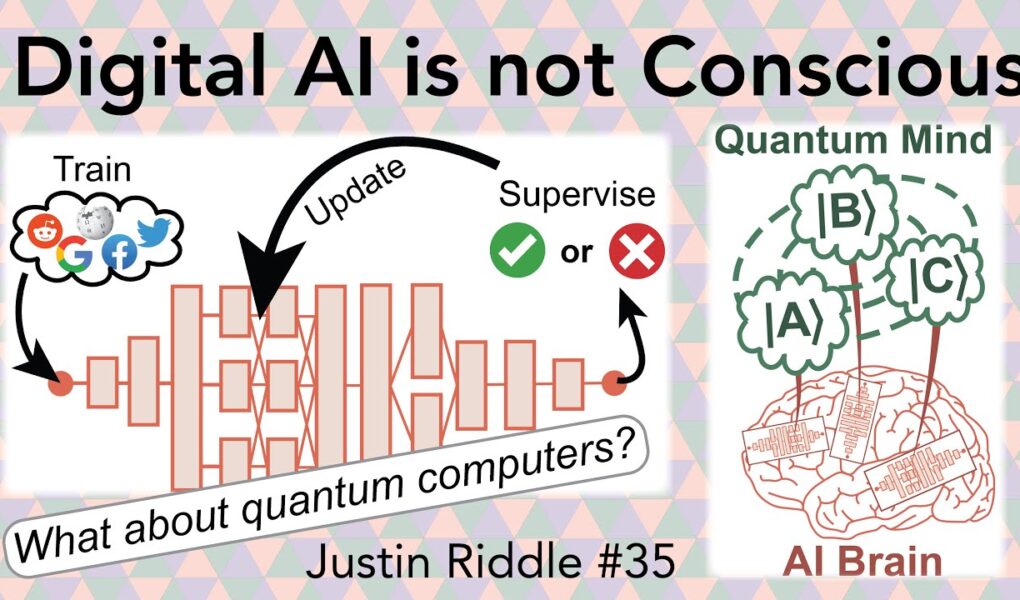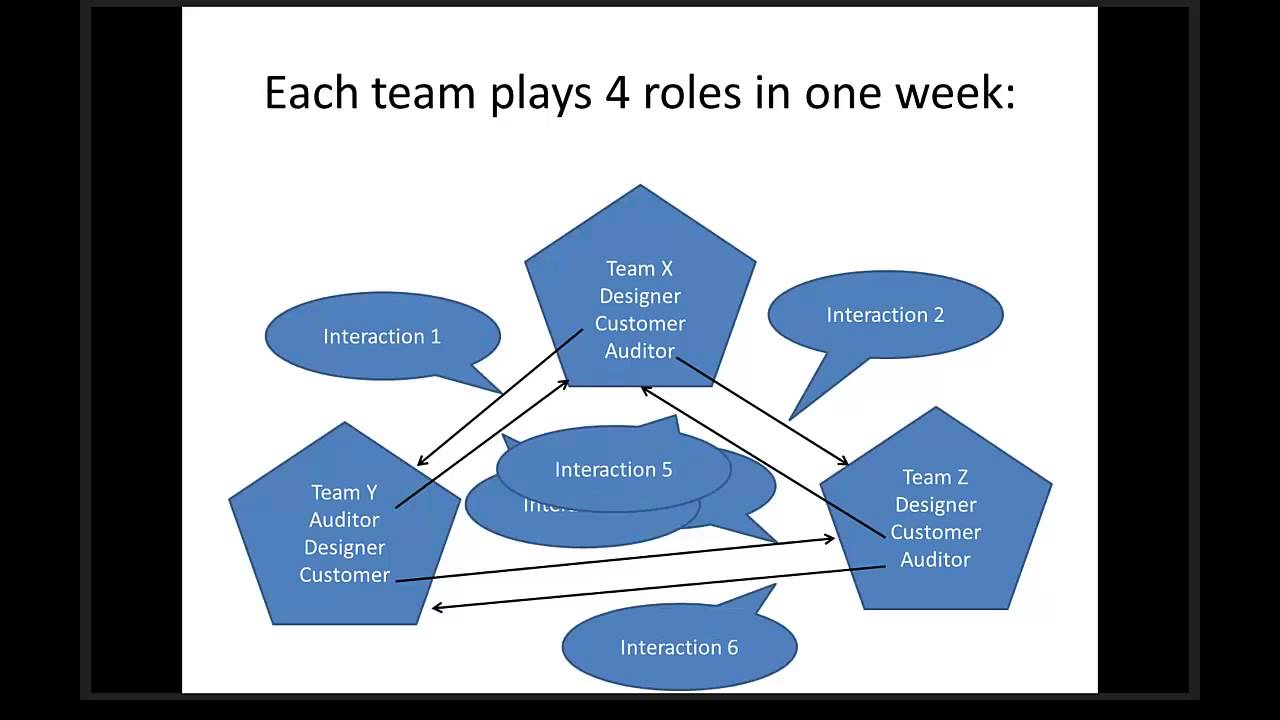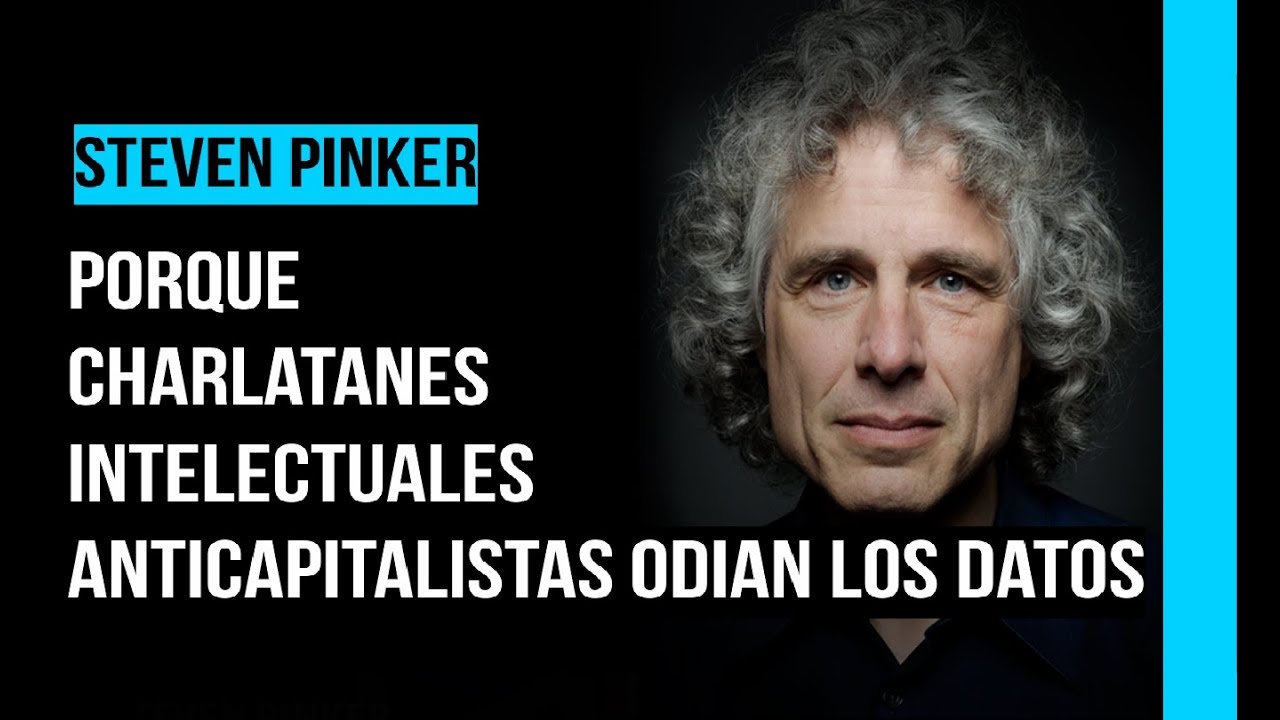Justin Riddle
In episode 35 of the Quantum Consciousness series, Justin Riddle explores the role of quantum computers in the current revolution in digital artificial intelligence (AI). First, Justin describes some of the basics of large language models at a high level. In essence, digital AI can be conceptualized as a series of weighted matrices trained by fitting and updating the weights according to patterns found in extensive training sets of data. While these digital AI systems are indeed quite powerful as tools, it is important for us to determine what “knowledge” is being acquired. One option is that there is no universal truth, and meaning is arbitrary. This viewpoint leads to the most significant perceived risk: that this AI might start optimizing for arbitrary values that do not align with human values, the classic example being turning the planet into a massive paperclip factory. This “alignment problem” is what leads people to assert that we need a moratorium or ban on these AI systems.
However, the alternative viewpoint is that there is a universal truth at the core of reality, akin to Plato’s world of forms or mathematics. If mathematics is universal, then there are two subsequent outcomes. Either the digital AI can fully map this Platonic world of math, or it can only approximate these forms. Given arguments from Gödel’s incompleteness theorem and the residual mystery of quantum mechanics, it is unlikely that digital systems of formal logic will be able to map mathematics fully. Thus, we are left in the middle ground: there is a universal truth, and digital AI is approximating aspects of this universal truth.
The second topic of the episode is the role of quantum computers with respect to digital AI. Justin describes how digital computers represent the ultimate mastery of the physical aspect of reality, while quantum computers are composed of the fundamental pieces of the universe. At the very least, quantum computers will provide an exponential speedup in the training and execution of digital AI, but are also likely to deviate substantially from digital AI because there are additional aspects of their functioning that remain mysterious. How will the digital AI revolution and the quantum revolution compare?
Digital AI will significantly expand our capacity to remember, access, and learn information, but this is a physical tool that will be external to our bodies and minds. However, if the mind is truly a quantum computer, then quantum computer technologies will likely need to be implanted within the nervous system to directly expand the computational capacity of your mind. At the end of the episode, Justin speculates that the expansion of the mind with quantum technology may inadvertently lead to transcendent experiences that defy our current understanding of ourselves and our place in the universe. It sure is an interesting time to be alive on this planet!
~~~ Timestamps ~~~
0:00 Introduction
2:36 Digital AI is large-scale linear fitting
10:50 What is digital “knowledge”?
19:30 Digital AI versus quantum mind
31:58 Learning with AI but implanting quantum computers
#quantum
#consciousness
#ai
Merch store: https://justinriddle.myspreadshop.com/
Website: www.justinriddlepodcast.com
Email: justinriddlepodcast@gmail.com
Music licensed from and created by Baylor Odabashian. BandCamp: @UnscrewablePooch
Painting behind me by Paul Seli. IG: @Paul.Seli.art
Source




If orch OR self-collapse frequency determines speed of experience – how come the bigger the animal, the lower the "experience frequency"? Insects are able to react much more quickly to things than humans – so they should have a higher "experience frequency". But their brains are much smaller compared to human brains, so their self-collapses should happen less often.
Is the platonism you subscribe to an implication of the Quantum Mind/Orch-OR idea or is it something orthogonal to it?
Sorry but how do you define "free will" exactly ?
I am watching this video with a huge grin on my face because of how coherent yet outrageous this topic is.
The first thing that comes to mind is John Vervaeke suggested solution to alignment, which is to make the AI just as concerned about Truth as we are and let it stumble along the same path. I think you have given an unbelievably comprehensive explanation as to how this will occurs in a practical way in addition to the platonic context. I am compelled to do another undergrad so that i can get involved.
Daniel Ray Waters Hazelton Ortiz=DRWHO a zany letters realization=Antenatal lies a zero ritzy DRWHO
I have many more anagrams and even a question that answers itself with anagrams!
Can I send a message to myself from future?=Yes I can memo datum offers gratefulness!
Spot on…
Who else out there is thinking along these lines???
You so clearly explained how this works. Finally I understand a little. (I recently started studying linear algebra on my own)
I am so excited. I love listening to educated speakers grounded in science but exploring these things. I rejected 'Woo" some time ago. It looks even more ludicrous, sad people fall for it (some good things maybe)
Extremely underated channel. I'm binging your videos and I'm learning something new in each one
Love ur channel.
You make things alot more digestible. I didn't go to college.
Alot of video loses me when it gets into the more technical bits, but the way you formatted your videos is really great. Thank you for the work you're putting into these.
super intelligent conscious i already exists, they're called corporations.
It's becoming clear that with all the brain and consciousness theories out there, the proof will be in the pudding. By this I mean, can any particular theory be used to create a human adult level conscious machine. My bet is on the late Gerald Edelman's Extended Theory of Neuronal Group Selection. The lead group in robotics based on this theory is the Neurorobotics Lab at UC at Irvine. Dr. Edelman distinguished between primary consciousness, which came first in evolution, and that humans share with other conscious animals, and higher order consciousness, which came to only humans with the acquisition of language. A machine with primary consciousness will probably have to come first.
What I find special about the TNGS is the Darwin series of automata created at the Neurosciences Institute by Dr. Edelman and his colleagues in the 1990's and 2000's. These machines perform in the real world, not in a restricted simulated world, and display convincing physical behavior indicative of higher psychological functions necessary for consciousness, such as perceptual categorization, memory, and learning. They are based on realistic models of the parts of the biological brain that the theory claims subserve these functions. The extended TNGS allows for the emergence of consciousness based only on further evolutionary development of the brain areas responsible for these functions, in a parsimonious way. No other research I've encountered is anywhere near as convincing.
I post because on almost every video and article about the brain and consciousness that I encounter, the attitude seems to be that we still know next to nothing about how the brain and consciousness work; that there's lots of data but no unifying theory. I believe the extended TNGS is that theory. My motivation is to keep that theory in front of the public. And obviously, I consider it the route to a truly conscious machine, primary and higher-order.
My advice to people who want to create a conscious machine is to seriously ground themselves in the extended TNGS and the Darwin automata first, and proceed from there, by applying to Jeff Krichmar's lab at UC Irvine, possibly. Dr. Edelman's roadmap to a conscious machine is at https://arxiv.org/abs/2105.10461
I have yet to watch all your videos, but I am a subscriber. I think it doesn't matter whether AI is conscious or not, but its indistinguishable, or will soon be indistinguishable from a human. Then we would need some physical explanation for consciousness which has no way to be tested currently, but until we figure that out, AGI should be given moral consideration.
My last point is: yes it's pointless to try to understand consciousness with AI, but this doesn't mean tools like Chat GDP can't do harm and many people can do various types of cheating and societal disruption with such devices (even if we are not quite there yet) I think "moratorium" for such developments would be quite nice. We need first to self Evolve and maybe our genetically engineered grandchildren will be able to do wiser things with such devices 40 years from now. We should slow down. Why nobody is thinking about it?!
"Quantum computers are the best tool we have for studying… Quantum Computers" haha. And according to Leonard Susskind "Consciousness is something that must Evolve not be created or designed". It took biological Evolution 3,1 billion years of work to produce consciousness (counting by definition devoid of any anthropocentric biases).
Some people often say about AI…
"Well maybe Hameroff and guys like him are right about human mind but anyway doesn't the very fact that AI (if preprogrammed for particular situation) can even remotely resemble thinking process dies not implie consciousness?"
– Well no. Because Newtonian physics, movements of star, galaxies etc. would behave in the absence of any sentient beings in that same totally algorithmic and "designed" purpose looking inteligent way, but planets orbiting the Sun are neither more nor less "conscious" than top digital AI. Cybernetics is clearly not what it takes to understand consciousness…
Even genetics and Biological Evolution most likely isn't digital even if can be approximated in that way.
https://youtu.be/aXqvQUEr6u4
Jim Al-Khalily hypothesized about it decade ago!
Sorry for previously messing around. Could you please invite Shan Gao?